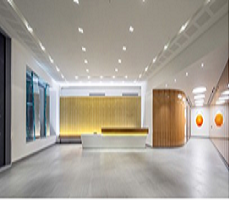June 12, 2014
Integration of workplace services continues to gain momentum, claims report
 HR, FM and IT within large corporate organisations are gradually being brought together to provide ‘Workplace services’ that recognise new working practices and the importance of people. This trend – which has already seen an agreement between the BIFM and CIPD to collaborate in the future, will accelerate in the increasingly agile, digitally driven business environment. This presents an opportunity for FM to provide new service solutions that focus more on supporting people, and less on the buildings from which they work. This is according to a new report, Delivering the Vision of an Integrated Workplace, was commissioned by Mitie, which will be unveiled at the Facilities Show next week. The report highlights the opportunities for FM providers to offer an expanded range of consultancy-style services, such as space management and the analysis of FM and property data to drive property strategy.
HR, FM and IT within large corporate organisations are gradually being brought together to provide ‘Workplace services’ that recognise new working practices and the importance of people. This trend – which has already seen an agreement between the BIFM and CIPD to collaborate in the future, will accelerate in the increasingly agile, digitally driven business environment. This presents an opportunity for FM to provide new service solutions that focus more on supporting people, and less on the buildings from which they work. This is according to a new report, Delivering the Vision of an Integrated Workplace, was commissioned by Mitie, which will be unveiled at the Facilities Show next week. The report highlights the opportunities for FM providers to offer an expanded range of consultancy-style services, such as space management and the analysis of FM and property data to drive property strategy.






















May 27, 2014
A third of UK workers would welcome a digital assistant to free up their time
by Mark Eltringham • Comment, News, Technology
A vision of the present. © Pixar Studios
In the 2008 Pixar film WALL-E, humans have fled the planet they have destroyed in an orgy of garbage-generating mass-consumerism and been reduced to morbidly obese, sedentary lumps living vicariously through screens and whose every need is catered for by the machines around them. Well, they say the best science fiction is really about the present day and sure enough, it appears that many of us are perfectly happy with the idea of suckling at the galvanised teat of a robot overlord. A new survey carried out by ClickSoftware claims that a third of UK employees would welcome the idea of having a personal digital assistant to help them carry out everyday tasks. Over half (58 percent) hope that intelligent apps will take on at least a tenth of their workload in the future, especially those tasks considered mundane and repetitive such as administration, work scheduling and planning journeys.
More →